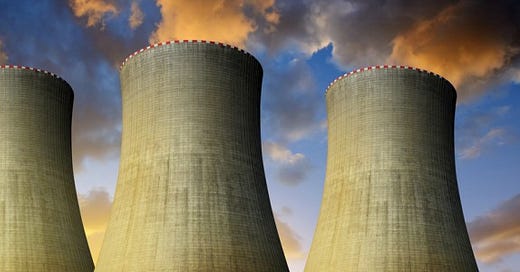Japan Has Reversed Course and Is Reviving Nuclear Power
Nuclear Power Was 30% of Their Electric Energy Before Fukishima, It's 6% Now
From Oilprice.com
Japan, which has made a U-turn in its nuclear energy policy in the wake of last year’s energy crisis, is considering granting subsidies to help with the necessary upgrades at nuclear power plants that are currently idle.
Nuclear power stations in Japan will be invited to take part in an auction in 2024 to get government subsidies for the necessary safety upgrades, Bloomberg reported on Wednesday, citing documents of the Japanese Ministry of Economy, Trade and Industry. The winning projects would give the nuclear power plants subsidies for 20 years that would help cover the costs for meeting the much stricter safety standards after the Fukushima disaster in 2011.
In the wake of the disaster, Japan closed all its nuclear power plants that underwent rigorous safety checks and inspections.
In recent years, Japan has restarted part of its nuclear power facilities. The first two reactors restarted in August and October 2015, with a further eight having restarted since. A total of 16 reactors were in the process of restart approval as of February 2023, according to the World Nuclear Association.
Nuclear power currently accounts for just 6% of the power generation mix in Japan, down from 30% before Fukushima.
However, the resource-poor country which needs to import about 90% of its energy requirements made a U-turn in its nuclear energy policy at the end of last year, as its energy import bill soared.
Japan is bringing back nuclear power as a key energy source, looking to protect its energy security in the crisis that led to surging fossil fuel prices. The Japanese government confirmed in December 2022 a new policy for nuclear energy, which the country had mostly abandoned since the Fukushima disaster in 2011.
A panel of experts under the Japanese Ministry of Industry decided that Japan would allow the development of new nuclear reactors and allow available reactors to operate after the current limit of 60 years.



